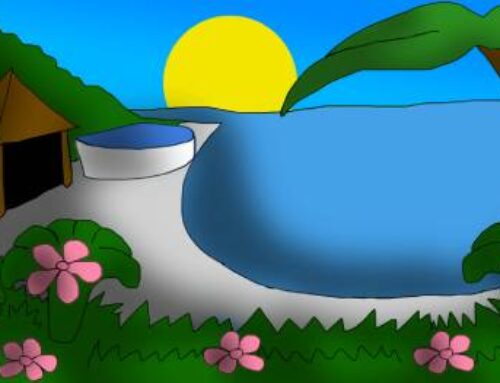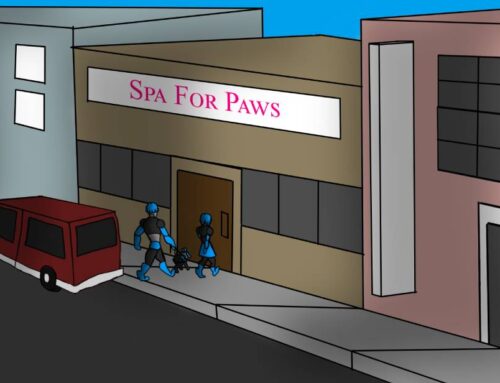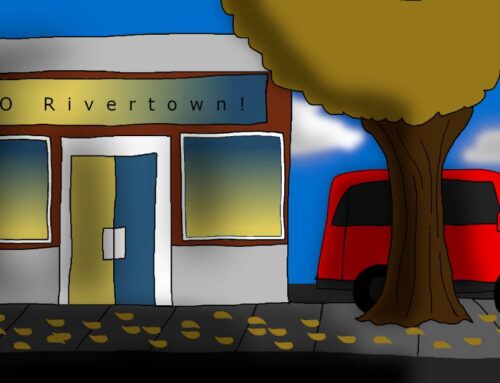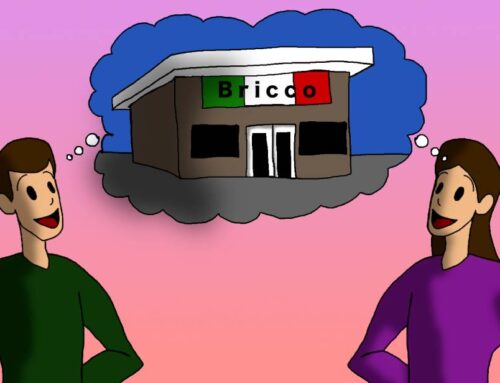Synopsis: RetroFITT®-ee systems are ideal for small lots and usage of alternative energy sources, such as solar.
Application: —[Featuring RetroFITT®-ee 0.15 & d-Rain Joint®]
Hometown Hero
May and Malcolm Overton had raised their family in a rambling county house on the far outskirts of Springdale where Route 41 makes a wide meandering curve before it straightens out and heads north.
When May retired after decades as a school nurse in Springdale and became a widow in the same overwhelming year, the house that had seemed crowded and noisy with four growing kids and their steady stream of friends now seemed way too big and much too empty.
So she did the only thing that made sense to her now. She converted the house into a boardinghouse for returning veterans.
She knew most of them from when they were kids in the school system. When they arrived home broken in ways that a nurse couldn’t fix, she welcomed them in with the solace and comfort of a cozy bedroom plus a warm meal and a sense of family around her big dining room table.
Ever the nurse, she became their medical advocate when health problems arose and helped them navigate the confusing red tape for benefit issues. And she fussed and worried about all of them.
Cole Macklin presented a special challenge however. He’d returned to Springdale by way of two tours of duty in the Middle East desert. The once star quarterback, glib and outgoing as Springdale’s golden boy, was little in evidence in the tentative, anxious individual who stood on her porch. Wearing a bedroll backpack and in the company of a scruffy mostly German Shepherd rescue he called Ranger, he was essentially homeless.
It broke May’s heart to have to tell him that, of course, he’d be welcome as a boarder, but owing to her extreme allergies, she couldn’t take in Ranger.
“But,” she said, “I have an idea.”
She thrust a note pad in his hand. ‘‘Let me know how I can get in touch with you. I’ll contact you later this week.”
She went inside and found the business card of Kurt Banyon. Kurt was one of the students who had followed the curve of Route 41 out of Springdale and into success. As a freelance project consultant, he helped businesses find personnel, resources and funding to turn ideas into thriving realities. His visits to Springdale had lessened in the past decade, especially after his parents were gone, but he maintained an easy friendship with May through several phone calls during the year. Each call ended with Kurt extracting a promise to call if he could ever help her.
She was about to make good on that promise.
Kurt recognized the caller ID and responded warmly, “Nurse May! How in the world are you?”
“I’m good, thank you, Kurt. You sound well. Do you have a moment?”
“For you—of course. What’s up?”
“I just saw your old teammate, Cole Macklin.”
“Cole?! Is he home from the service? Wait! Don’t tell me he’s moving into your boardinghouse?!”
“Actually, I wish he were,” May said. “He came here hoping to do that. But he had a dog with him and my allergies won’t allow it. I think the dog is a dealbreaker all around. He seems quite attached. So I’m calling to see if you still have that old hunting cabin and whether Cole might live there for a bit.”
“I do still have it, but I doubt it’s livable. It has several years worth of cobwebs at least. And it’s out in the woods so far from everything.” Kurt paused and added, “To be honest, I have been thinking the best thing would be to tear the old place down.”
“I’ll be honest with you, too. I think the isolation and quiet might be just the thing Cole needs right now. People spot him around town but he avoids contact.”
“Let me send someone out to check on the old place. Unless my team finds something out of whack, Cole’s free to use it as long as he wishes.”
The crew that Kurt dispatched to the cabin reported that the cabin was indeed very spartan, but that it had “good bones” and could be made inhabitable with some elbow grease. Cole welcomed the chance to provide that grease and moved in three days later.
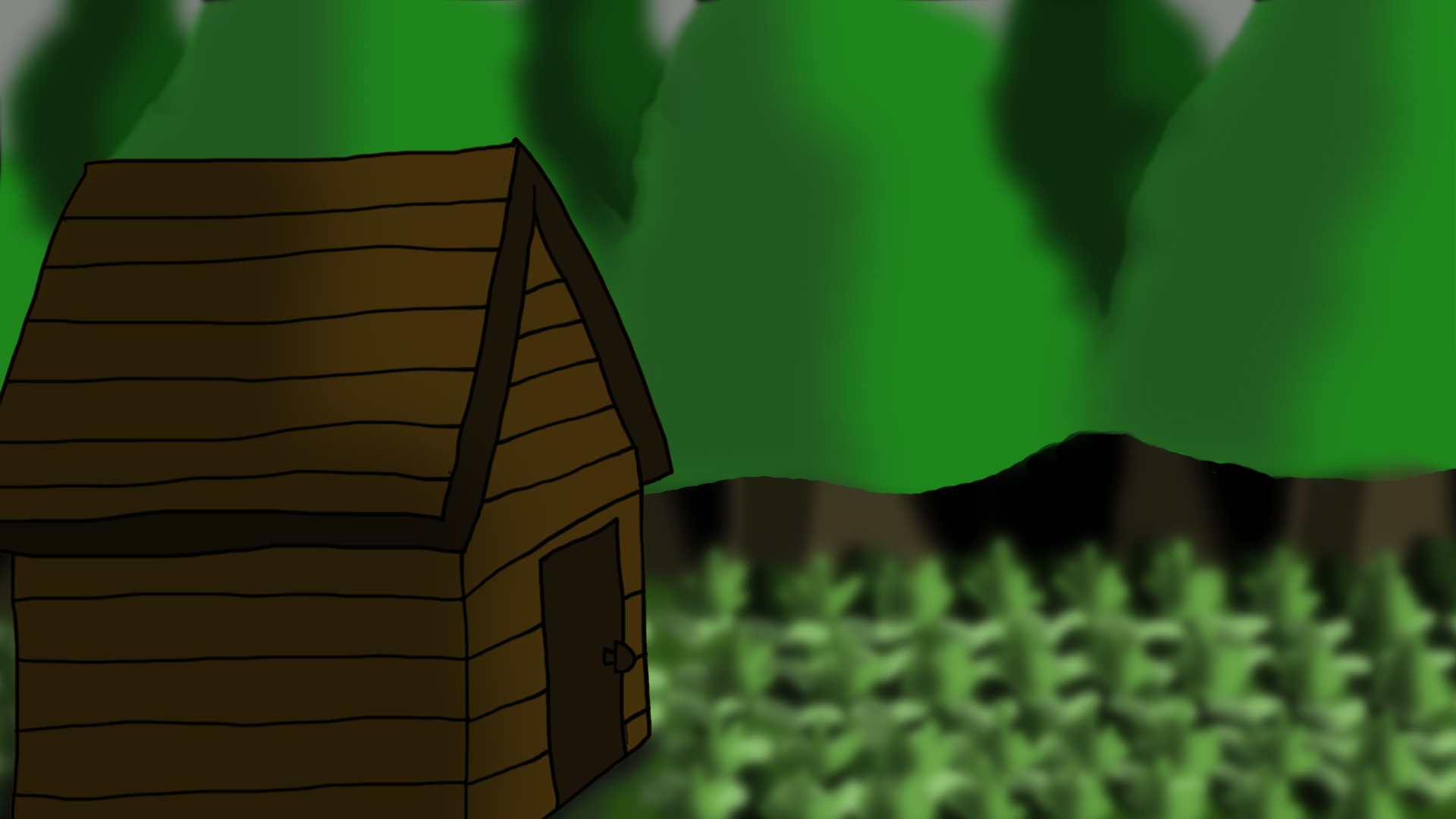
Although Cole was rarely seen around Springdale, May periodically arranged for groceries and supplies to be delivered to the end of the cabin road. Usually within 24 hours, she’d find a small note of thanks tucked in her mailbox.
A New Twist in the Road
There had long been talk in Regal County about widening and straightening Route 41. It had been all just talk until two representatives from the county road commission showed up at May’s door with a map and a proposal. With Route 41 highlighted on the map, she could see how the road meandered around her property. An overlay showed the proposed straightened path, which essentially obliterated May’s house and garden. The back of her property was wooded and gently sloped upwards in elevation. This chunk, approximately an acre, would not be part of the road effort.
In the last year, May’s four children, all living away from Springdale, had mounted a campaign to convince May to sell the big house and divide her time with each of them. And there had been increasingly frequent days when her knees, tired from climbing up to the occupied rooms on the second floor and to the third-floor dormer, had joined in the argument. So it was with some genuine relief that she listened to their offer.
But her biggest concern was for her boarders, who all called her Nurse May and called her house “home.” Sharing their dinner conversations had made her sympathetic to the myriad issues they faced. She’d read how other areas of the country responded to the needs of returning veterans. One idea in particular had resonated with May: communities that built clusters of tiny houses, each only about 200 to 300 square feet, and made them available to veterans who might otherwise be homeless.
“Why not here?” May asked herself. “Why not right here on the land I’ll have left?!”
So May decided to put her money where her heart is.
Armed with copious research and the great respect that Springdale held for her nearly half century of service to the area’s school children, May appeared before the Springdale council with an offer she hoped they could not refuse. If the council would consider building a tiny house community for the vets, she’d donate her remaining acre as the building site.
The council responded with the interest and enthusiasm that May hoped. She urged the council to involve Kurt Banyon as an off-site liaison to put them in touch with any resources or expertise not readily available in Springdale. Thus, the concept for Camp Vet was launched.
Finding a Perfect FITT
It didn’t take long for Kurt’s connections to be tapped. The project would be overseen in Springdale by a local contractor, Miles Caruso, and long-time council member Brenda Holloway. A plan was drawn up for ten tiny homes, averaging about 250 square feet each, to be situated on the acre. But would the existing septic system and the land available for a drain field allow adequate wastewater management for this population? Kurt knew which of his trusted A-list suppliers to call to find out.
“Better Water, Better World. This is Robust speaking.”
After Kurt explained the Camp Vet tiny house project, Robust readily agreed to help. Kurt informs the Springdale committee that he’s sending them a wastewater management specialist that he’d worked with numerous times before. Since this aspect of the project is so critical, Kurt would be making the return to Springdale to be part of the meeting. He grinned to think of the impression the robotic Robust would make on his hometown. He wouldn’t have missed it for the world.
The Springdale folks who had known Kurt all their lives were boisterously welcoming Kurt home but became utterly and uncharacteristically speechless when Robust’s blue and silvery-gray figure flew—literally—into the room.
Robust looked at Kurt and did a robotic equivalent of an eyeroll. “I can see that perhaps you did not explain all of my capabilities,” he said.
“I may have omitted a few details,” Kurt grinned. He then shared that Robust was a B.O.T., a Bio-Microbics® On-site Technician, created from the physical parts and the innate intelligence in Bio-Microbics’ advanced wastewater and stormwater treatment systems.
Robust, using his internal projection capabilities, began a presentation on the screen at the front of the room. Kurt had provided preliminary data, but the question remained as to whether the acre of land would provide enough drain field area to support ten tiny houses. He said he’d need to do an onsite inspection of the existing septic system and take some soil samples and measurements, but that it seemed the tiny houses would be ideal candidates for a RetroFITT®-ee 0.15 wastewater system. Diagrams and animated videos filled the screen as he walked them through the advantages.
“Its low energy requirement and low cost would benefit both the Camp Vet project and the environment. Its daily treatment capacity is specifically suited to single person occupancy.”
He said that installing a RetroFITT®-ee 0.15 at each tiny house would allow a smaller dispersal field size that might readily work on the one-acre site.
“In short,” Robust added with a robotic flourish that those in the room would later describe as a blue burst of light, “It’s a perfect ‘FITT’ for this application.”
As Kurt had seen happen on other projects, once Robust launched into his knowledgeable explanations, folks stopped seeing him less as a B.O.T. and more as a colleague. Robust began coordinating a schedule with the committee a schedule for the next steps; he would be a frequent visitor to the site in the days following this initial meeting.
Leaving this part of the project was in Robust’s capable hands, Kurt returned home. Early the next morning he received a rare text from Cole Macklin.
“Plz call” was the terse message.
It’s a Dog-Meet-Dog World
When Kurt called, Cole stammered through an apology for bothering Kurt and finally got around to the issue—the toilet wouldn’t flush and it the sink drain had backed up.
“It’s beyond what I can do with a snake and a plunger, Kurt. I’m making do with bottled water.” Then showing a streak of humor reminiscent of the old Cole, he added, “And, well, I have an entire woods at my disposal.”
Kurt assured him that he’d get right on it. He hung up and punched in a familiar contact number.
“Better Water, Better World. This is Robust speaking.”
Kurt briefly covered the situation with Cole and his old cabin. He told Robust he suspected the ancient septic tank on the premise was the root of the problem. Robust said it sounded like an assignment for a colleague whose specialty was water system leaks and drain field failures.
“Oh, Aerobe?” Kurt asked. He’d worked with her on various projects in the past.
“Um, no, although she will probably be with him. Tell me again where this cabin is. They can probably be there yet today.”
Kurt gave Robust the cabin coordinates and set a time to meet, then arranged a commuter flight to the small Springdale airport. He texted Cole to let him know someone would be coming to check on the plumbing problem. Kurt doubted they’d even see Cole. New people sometimes heightened his anxieties and he became even more reclusive.
Kurt was driving his rental car up the gravel drive that led to the hunting cabin barely visible through the trees. He saw a flash of silver as Aerobe lightly lowered herself to the ground among the trees. Kurt parked and walked over to the direction where he’d seen her.
“Aerobe?” He called.
“Over here.” she replied in a low voice was both feminine and mechanical.
He walked to meet her. “Robust said you were bringing a new colleague. Is he coming later?”
“Oh, no, he’s with me,” she said and pointed downward. Kurt looked down and was startled to see a robotic-looking Shih Tzu at her feet.
She said deadpan, “Kurt, this is our new associate, Eco, a specialist in water leaks and drain field troubleshooting.”
She added lightly, “Robust said he might have omitted the fact that Eco is a dog.”
Kurt laughed at the payback joke that Robust had played on him. After Eco politely offered his paw to shake, Kurt said, “I think the septic system is just beyond that stand of trees.”
They began walking as Cole and Ranger emerged from that same cluster of trees. Everyone stopped.
Aerobe spoke first, “Hi, you must be Cole Macklin. I’m Aerobe, and this is Eco, who is trained to detect water leaks and drain field problems, among other water management specialties. I understand you had some problems with the cabin’s plumbing.”
Cole was frankly dumbstruck, thinking that her voice sounded a lot like the soothing trickle of a flowing brook. Ranger and Eco took a tentative step toward each other. In typical dog-meet-dog behavior, each glanced at the other, then looked away. Eco made a slight trilling sound and then bowed to Ranger, extending his paws forward. Ranger cocked his head slightly up to Cole to make sure it was safe to leave his side and then he too bowed with his legs stretched out.
Kurt asked, “Is it just me or did those two just have a meeting of the minds?”
Aerobe just laughed softly again and said, “Eco, shall we go to work?”
Eco immediately began walking to the area beyond the trees, sniffing the ground and making a slight yodeling sound that Aerobe seemed to understand.

Kurt turned to Cole and said, “This cabin hasn’t been used in so long, the septic system is probably clogged, or maybe roots have busted the pipes. This may not be fixable—”
Cole looked off in the direction of Aerobe and Eco. He nodded his head slowly, then blurted out, “Kurt, what exactly are those two?”
Before Kurt could answer, Aerobe and Eco emerged from the field. Eco and Ranger continued their own strange communication while Aerobe said, “Eco is sure a failed drain field is the problem. We need to do some analysis and we can send you several recommendations.”
Kurt thanked Aerobe and Eco for coming on such short notice. He added with a grin, “Be sure to tell Robust that we’re even now.”
Before leaving Springdale, Kurt dropped in at the Camp Vet site. He explained Cole’s current situation to Miles and his team and asked, “Is there any way to make one of the tiny houses movie-in ready as soon as possible? Cole really can’t stay in that sorry old cabin of mine much longer.”
Their news was optimistic. They said that the first RetroFITT®-ee units were delivered and installed had begun. They would focus on the utility hookups and then get the exterior furnished of the one tiny house designated for Cole.
Miles promised, “We can make this happen for Cole.” The crew nodded with resolve.
Miles brought Kurt up to speed on other developments at the site.
“There’s still a lot of land terracing we need to do for the other tiny houses. We need to be sure that there’s adequate stormwater drainage. You may remember how fierce spring rains can be around here. We don’t want that hillside to erode on us. Robust told us about something called d-Rain Joint®, said it’s a rainwater filtering system that can be installed in concrete walkways and other pavement areas to channel rainwater to drainage areas underneath the surface to control run-off. Robust said he’d send out a new associate who is a water run-off specialist to pinpoint the best locations to install them. By the way, Robust said you’d worked with this new guy recently.”
Kurt replied, “Yep, you’ll find him amazing,” then chuckled to himself, thinking how the crew would react when they discovered the “new guy” was a dog.
A True Homecoming
Later that week, Kurt called Cole.
“How’s roughing it?” he asked.
“Oh, we’ve endured worse,” Cole said, truthfully. “Ranger and I are just happy to have a roof over our heads.”
“I heard from Aerobe,” Kurt said. “She told me the septic system could be saved, but I need to decide whether the cabin is worth the expense and the effort or if I ought to just tear it down.”
Cole was quiet for a moment and then said, “I wish I could help.”
“Actually, you can. Would you consider moving to another place while I decide what to do with the old cabin?”
“You’ve been very good to me and Ranger, Kurt, so whatever you decide is ok with us.”
“Great, there’s a place I’d like you to look at. It’s your choice, of course, but I’m hoping you’ll both like it. I’ll be back next week.”
Sensitive to Cole’s aversion to crowds and fanfare, the Camp Vet team decided to allow Kurt to bring Cole to the tiny house by himself. May would be the only other person on the premises. Even the work on the other tiny houses would cease for a few hours to allow Cole to quietly settle in.
So the following week, Kurt returned to Springdale and picked up Cole and Ranger.
Soon Cole realized they were heading to May’s place. “I told you Nurse May won’t allow dogs,” Cole began, “so why—.”
“We’re not going to the boardinghouse, Cole, we’re going to the back acre.”
May was standing in the doorway as Kurt led Cole and Ranger up to the tiny house. Cole was wide-eyed as he stepped inside and slowly set his backpack down. Ranger remained glued to his side.
May reached out and placed the keys to the tiny house in Cole’s hands.
“Welcome home, Cole,” she said. “Welcome home.”

Epilogue
The day after he moved into his tiny house at Camp Vet, Cole noticed a flash of silver out the window followed by a soft knock at the door. When he opened it, there stood Aerobe and Eco. Aerobe handed him a present.
“Hi, Cole. Eco is h


